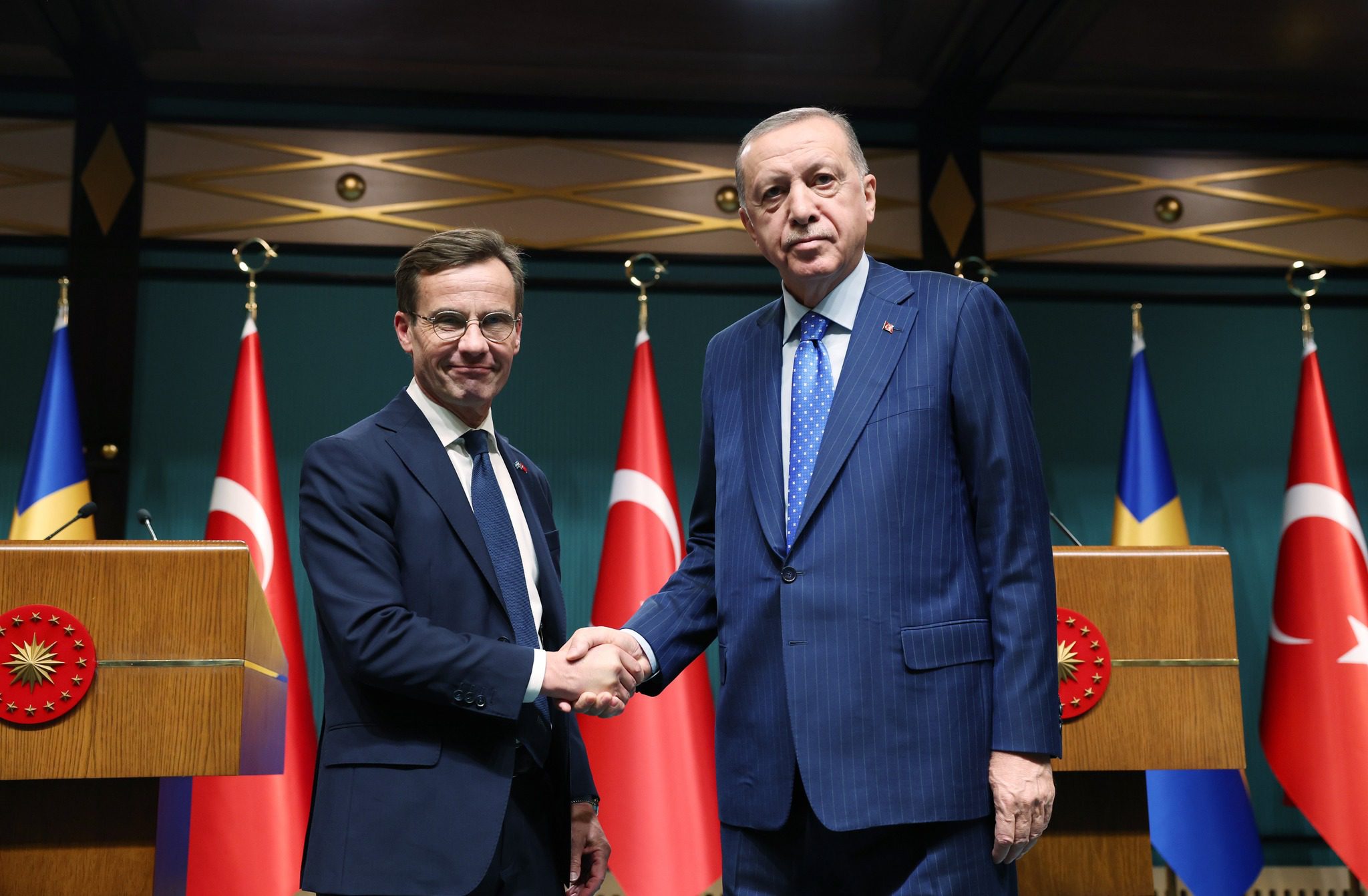
Sweden’s new PM pledged his government would uphold its commitment to counter Kurdish ‘terrorist’ groups within its borders. The announcement came on November 8th and serves to appease Turkey, which—along with Hungary—has yet to ratify the country’s NATO membership bid.
Prime Minister Ulf Kristersson held a private tête a tête with Turkish President Recep Tayyip Erdoğan and other officials, after which the statement was released.
Turkey, which boasts the second-largest army within NATO, has thus far remained opposed to Sweden and Finland joining the U.S.-led military alliance—both had abandoned their long-standing policies of neutrality after Russia invaded Ukraine in February.
Ankara has expressed reluctance to admit the two countries because of their historical support for the PKK (Kurdistan Workers’ Party), as well as the Syrian Kurdish militia group YPG and its political branch, PYD. Both groups are considered offshoots of the PKK by Turkey.
In 1980, the PKK launched an insurgency against Turkey to regain control over what it considered Kurdish territory. The PKK, along with its Syrian subsidiary, has been designated a terrorist group by Turkey ever since. The EU, with the U.S., also labels the PKK as such.
Aware of the need to make good on his promises, Kristersson stated that his government “was elected just a few weeks ago on a mandate to put law and order first,” which includes “countering terrorism and terrorist organisations, like the PKK, in Sweden.” Of note, Sweden currently has around 100,000 Kurds, almost 1% of the country’s total population. Many of them fled Iraq in the period following the U.S.’ 2003 invasion.
Kristersson went on to assure “all Turks” that Sweden “will live up to all the obligations made to Turkey in countering the terrorist threat before becoming a member of NATO and as a future ally.” Acknowledging Turkey’s “long and bloody fight” against PKK terrorists, he mentioned that last Thursday, his government decided to start contributing to NATO’s anti-terrorist fund, with the initial sum of $1 million.
Kristersson’s statements follow Foreign Minister Tobias Billström’s denunciations of the YPG and PYD made earlier this week. These organizations, he said, were too closely linked to the PKK.
The week before, NATO Secretary-General Jens Stoltenberg had traveled to Turkey where he advocated for Sweden and Finland to be accepted as members as they had “delivered on their agreement,” and had “become strong partners in our joint fight against terrorism, in all its manifestations.” Finalizing their accession, he stressed, is even more important in these dangerous times, “to prevent any misunderstanding or miscalculation in Moscow” and to send a clear sign that NATO’s door remains open.
Erdoğan, encouraged yet not wholly convinced, said he wanted to see “concrete steps” first, noting that while Sweden may want NATO membership “for its own security, we want to see a Sweden that supports our security concerns being met.”
He announced a new meeting, due to be held at the end of the month in Stockholm, from which he hoped “a more positive conclusion” would flow. Erdoğan did however hail as a “positive step” Sweden’s late September decision to lift an arms embargo after Turkey went into northern Syria to combat Kurdish militants. Back in June, the two countries (with Finland) signed a memorandum that lifted Turkey’s veto, on the condition that Sweden and Finland address Ankara’s remaining concerns.
A possible sticking point is Sweden’s extradition of certain individuals wanted by Turkey. While at present, four of these have already been handed over to Turkish authorities, the total number is yet to be negotiated. Erdoğan however named one journalist desperately wanted by Ankara. The man stands accused of belonging to an Islamic network led by the U.S.-based cleric Fethullah Gulen, suspected of having masterminded a fruitless 2016 coup attempt. “Deporting this terrorist to Turkey is very important to us,” he said.
Next week, on November 16th, the Swedish parliament will hold a vote on changing the constitution in order to strengthen its capabilities in fighting terrorism. This would allow “restricting the freedom of association of groups engaged in terrorism,” the parliament said in a statement. Prosecuting members of the PKK would thereby become easier, while satisfying Ankara.
During his press conference, Kristersson described such an amendment as a “big step,” as it will give Swedish legal authorities more muscle to fight terrorism. The Left Party is opposing the change.
Before Finland and Sweden can become part of NATO, they need unanimous approval from all 30 existing alliance members. Besides Turkey, Hungary also has yet to formally ratify but expects to do so by mid-December.
